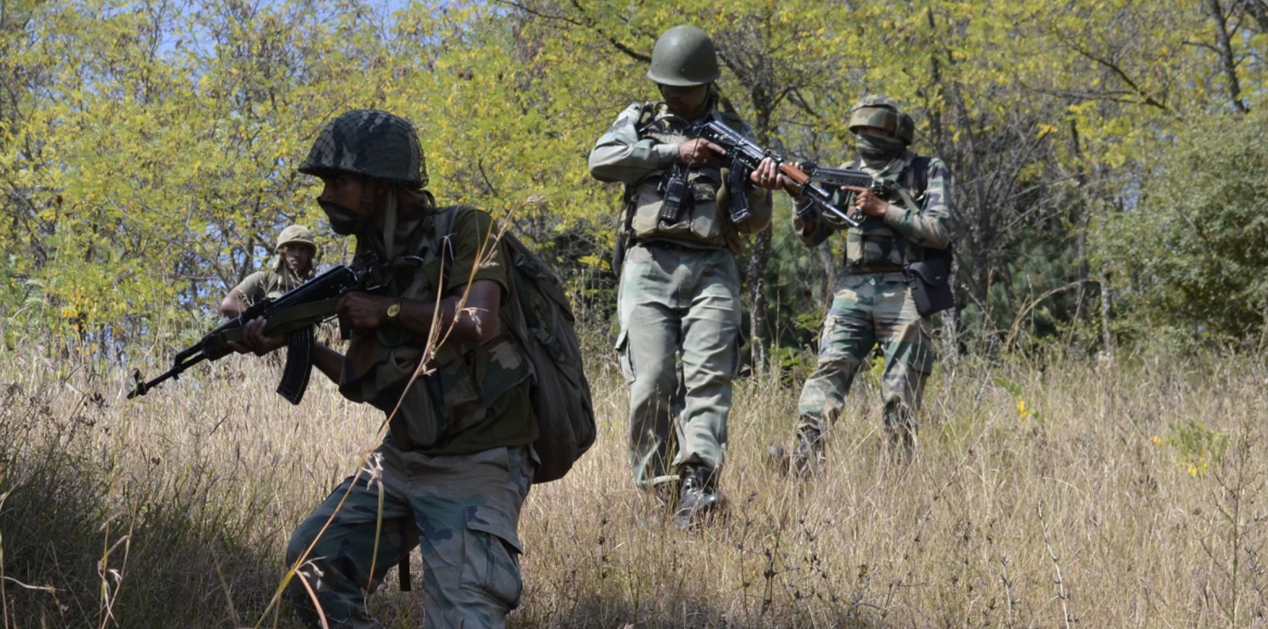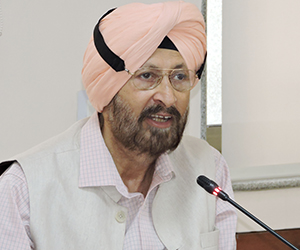Surgical Strikes across the LoC
On the night of September 28, 2016, several teams of the Special Forces of the Indian army crossed the Line of Control (LoC) through gaps in the forward defences of the Pakistan army. The highly-trained commandos walked quietly over several kilometres across some of the most difficult terrain in the Himalayan mountains under the very nose of the Pakistan army. Their targets were terrorist training camps in Pakistan Occupied Kashmir (POK). They struck with deadly effect and, as quietly as they had come in, they exfiltrated back across the LoC.
In his briefing after the attack at Uri on September 18, the DGMO had said that the army “reserves the right to respond” to the terrorist strike at Uri at a time and place of its choosing. It took ten days to plan the operation, which was based on accurate intelligence. In carefully measured words the DGMO said during a press briefing on September 29 that India’s Special Forces had “inflicted significant casualties” on the terrorists and their infrastructure in surgical strikes the previous night.
The operations were meticulously planned and brilliantly executed. According to media reports, surgical strikes were launched at up to seven terrorist camps across the LoC and thirty to forty terrorists were killed. In an operation that was conducted with the utmost professionalism, the personnel of the Special Forces did not suffer any casualties. While the credit for the success of these complex operations goes to the officers and jawans of the Special Forces, the Prime Minister, members of the Cabinet Committee on Security and the NSA deserve to be complimented for giving the go ahead to the army to launch trans-LoC raids on terrorist training camps. For the first time since the 1971 war with Pakistan the political leadership of the country has exhibited firm national resolve.
Pakistan’s Nuclear Sabre-rattling
In keeping with the national psyche, the Pakistan army hasopted to deny that the surgical strikes took place. However, the blame game has begun in Pakistan. In a television interview, Imran Khan was severely critical of Prime Minister Nawaz Sharif's leadership. He said he 'will show Sharif how to respond to Modi.'
Pakistan's leaders find their country diplomatically isolated both in the region and beyond. True to form, they have once again begun to indulge in their favourite pastime of nuclear sabre-rattling. Defence Minister Khawaja Asif has once again held out a nuclear threat to India. 'Islamabad,' he said, 'is open to using tactical (nuclear) devices against India if it feels its safety is threatened.' It is a patently flawed approach as, in response to a nuclear attack on its forces, India will execute its doctrine of massive retaliation and Pakistan will cease toexist as a functional nation state. Surely, that is not the end state that the Pakistan army is prepared to accept.
Vigorous Response
For three decades the Pakistan army and the ISI – known as the deep state – have been waging a proxy war against India as part of their strategy of leading India through a thousand cuts. Neither after the attack on Parliament in December 2001 nor after the multiple terrorist strikes at Mumbai in November 2008 did India choose to address the perpetrators of terrorism in Pakistan and PoK.
So far India has conducted its counter-proxy war campaign within its borders and on its own side of their LoC. While the strategic restraint shown by India despite grave provocation enabled the country to keep the level of conflict low and sustain a high rate of economic growth, it did not succeed in creating any disincentives for Pakistan’s deep state. The terrorist attack on the air force base at Pathankot on New Year day could be deemed to have once again crossed India’s red lines. Despite that the Indian government gave Pakistan yet another opportunity to make amends by inviting an investigation team to come to Pathankot to evaluate the evidence of Pakistani involvement that India had provided. The attack at Uri was the last straw and the rules of the game have now changed.
By launching trans-LoC strikes on terrorist training camps with its Special Forces India has sent several messages to Pakistan. Firstly, the present Indian government will not tolerate the wanton killing of innocent Indian civilians or soldiers by state-sponsored terrorists from Pakistan. Secondly, the surgical strikes are a warning to the Pakistan army that if it does not put an end to cross-border terrorism, it may expect an even more vigorous Indian response.
Range of Options
India has exercised a range of political, diplomatic, economic and military options in response to the terrorist attack on Uri. These include cancellation of the SAARC summit and indefinite postponement of the next meeting of the Indus Waters Treaty Commissioners. Other measures pertaining to the Indus Waters Treaty and the MFN status given to Pakistan are under consideration of the government. However, what is necessary is to formulate a comprehensive national-level strategy to counter Pakistan’s proxy war.
The political aim should be to raise the cost for Pakistan’s deep state for waging its proxy war, with a view to eventually making the cost prohibitive. The aim of Indian diplomacy should be to isolate Pakistan in the international community and work towards having the country branded as a terrorist state by the UN Security Council. India should take the first step in this regard and make a declaration to this effect. If necessary, India should withdraw its High Commissioner from Islamabad and scale down the size of its mission.
The aim of measures in the economic field should be to choke Pakistan’s economy. The imposition of unilateral economic sanctions is a measure that India could consider, especially if the UN Security Council fails to impose economic sanctions at India’s request. India could also use its buyer’s clout with defence MNCs to ensure that companies that sell weapons and defence equipment to India refrain from selling the same to Pakistan.
Military Measures
The military aim should be to inflict punishment on the Pakistan army deployed on the LoC for every act of terrorism on Indian soil for which there is credible evidence of its involvement or the involvement of its organs such as the ISI. For each subsequent act of terrorism the scale and the intensity of the dose should be increased by an order of magnitude. Military operations designed to inflict punishment should include artillery strikes with guns firing in the ‘pistol gun’ mode to destroy bunkers on forward posts with minimum collateral damage; stand-off PGM strikes on brigade and battalion HQ, communications centres, logistics infrastructure, ammunition dumps and key bridges; and, raids by Special Forces and border action teams (BATs). Every Pakistani post through which infiltration takes place should be reduced to rubble by artillery fire.
Counter-proxy war operations should be supplemented by covert operations. Since Pakistan is not inclined to bring to justice the leaders of terrorist organisations like the LeT and the JeM, terrorists whom they call ‘strategic assets’, they must be neutralised through covert operations. When the Pakistan army begins to hurt and bleed, gradually the ‘deep state’ will realise the futility of its nefarious designs on India. While Pakistan may not give up its claims on Jammu and Kashmir, it will be forced to come to the negotiating table to discuss a long-term solution to the dispute through peaceful means.
India Stands United
In the wake of the trans-LoC surgical strikes, India stands united as a nation; its people stand together as one with their heads held high. And, India has the support of almost the entire international community as the world is tired of the crippling impact of fundamentalist terrorism.
Pakistan is a house divided; itstands alone in isolation both among is neighbours in South Asia who are tired of its sponsorship of terrorism; and, in the international community.
Pakistan has become a pariah state and it remains to be seen whether its leaders will see the light of day and make a course correction, or if they will continue down the path of ruin. If Pakistan implodes, the repercussions will be felt far and wide as its nuclear warheads will in all probability fall into Jihadi hands.
(The writer is Visiting Fellow, VIF and Distinguished Fellow, Institute for Defence Studies and Analyses (IDSA), New Delhi)
Published Date: 5th October 2016, Image Source: http://www.dailymail.co.uk
(Disclaimer: The views and opinions expressed in this article are those of the author and do not necessarily reflect the official policy or position of the Vivekananda International Foundation)











Post new comment